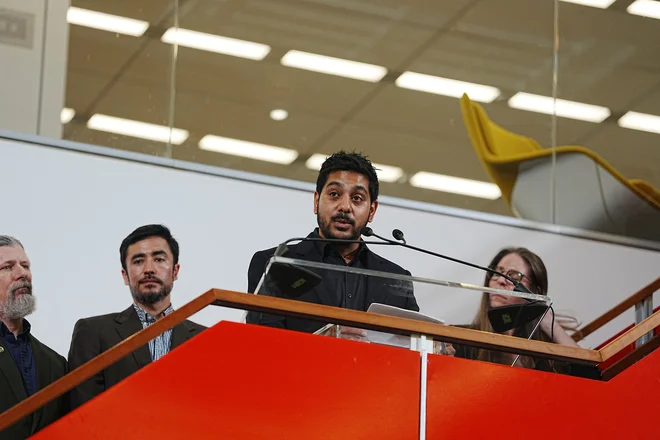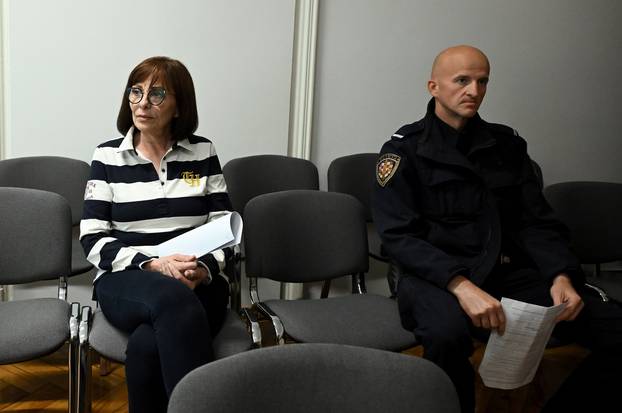Why did we complicate the legal system to unrecognizable

Let me start with the information that will throw many from the chair: Slovenia had a total of 1368 legal acts at independence. In 2025, according to some data, 18,918 legal acts can be listed in Slovenia. It is said that the production of legal acts has increased by almost 1300 percent.
What happened legally so important that 34 years later we need to follow 17,550 more regulations than in 1991? Laik would freely think that criminal activity in the country has increased so much. Or that we have progressed so much economically, scientific, culturally and sports that we fell into the trap of congestion.
But the truth is simpler.
Mag. Boštjan J. Turk. Photo: Marko Cokan
First of all, some mitigating circumstances: when Slovenia gained independence in 1991, it was just beginning to build its legal system.
At that time, we adopted only those most important legal acts: the constitution and the most important systemic regulations that we urgently needed to function key social systems – legislation in the field of health, education, law on companies, tax legislation, labor law, criminal law and the like.
When we entered the European Union in 2004, we had to adapt the law to EU law, which caused a new normative euphoria. But let me hint here that entry into the EU was only convenient, not to say an unfamiliar excuse for writing new laws.
The next mitigating circumstance is the conservative continental legal system. In Slovenia, as well as in many other European countries, we insist on the continental tradition, in accordance with which the legal source can be only a law, but not, as a rule, a significantly more vital and practical judicial case (as is the case in the Anglo -Saxon system).
Now let me return to join the EU, which has served many bureaucrat as a determined excuse for writing new paragraphs. You know, the EU requires us to pass a particular law. Well, this is – very mildly – the result of a very poor understanding of the nature of European law.
The most important legal source of the EU is directives that do not require the Member States to immediately adopt a new regulation, but set only the orientation, the goals that Member States must accomplish while leaving the way they to them.
It is explicitly emphasized that members can also take into account domestic specialties in the transfer and do not always have to adopt a new law, but, for example, can only change the existing – or not.
The next sin is associated with complicating the uncomplicated. If many Slovenian lawyers were to take into account only the troch of wisdom of the great Roman thinker Mark Aureliuswho said that the vast majority of what we say (and write) is non -essential, and that we have to focus on essential if we want to understand anything already, Slovenian judges would not face a mantra that they have to write from 20 to 30 pages long judgment, in which they often forget to say what they really thought of the first, and Slovenian writers would not write laws. The addressees will never internalize – either because of a different culture and tradition (for example: the prohibition of selling alcoholic beverages after 22 hours) or because of their non -life -in -life (example: legislation in the field of personal data protection, which imposes a great deal of charges for the selection of personal data and informing individuals about their processing) or due to chronically deficient inspection (significant part of tax inspection). construction legislation, consumer law).
It is also difficult to understand that in Slovenia, numerous proposals for regulations are written by the alienated state officials from the practice. Especially because it is clear that many of them live on a completely different planet than the addressees of these regulations, such as entrepreneurs, culturalists, athletes who know the curses well what solutions from the law are even feasible and which are not. The fact that the matter is even more foolish is then resisted by the Slovenes, if the proposal falls, the draft law should write a prominent external legal expert or professors who knows much better the problems and problems of marriage from the state official. But why do you make money to anyone else?
Even the lawyers in this story are not completely innocent. We are aware that our « business » is increasing in a proportion to the amount of regulations adopted. As many laws, regulations and by -laws will be produced by the National Assembly and the government, of course we will have so much more work. Therefore, we prefer to be wise quiet, but only when the transmittance reaches such a dimension that we feel that in what case the client simply can no longer give a legal advice for which we would stand 100 %.
However, it is also a consequence of fright.
The more the state has regulations, the more she admits that she lacks confidence. Or knowledge. Under the guise of chewed clichés, such as the one about respecting the rule of law or taking into account the principle of laws, it proves that it does not or does not dare to address the right causes of the occurrence of anomalies in society – such as the absence of adequate education, the wrong values, the fall of moral standards, ignorance of violence, insensitivity to the distress of people.
And thus, the legislature adopts a new law, which, if possible, adds excessively high sanctions, hoping to force citizens to bend in fear of cash or imprisonment. But they won’t.
Winston Churchill once said that if you have 10,000 regulations, you will destroy all the respect that the law still has. Well, we already have more than 25,000 in Slovenia. Probably the greatest Briton of all time is right. Man is designed so that he can only consume a certain amount of commandments that benefit him and the society in which he lives. Anything that is more than what is unnecessary or unwise will spit or simply ignore.
It is a self -preservation urge that allows him to survive, to which sooner or later every legislator will collide, who, by some understandable logic, always believes in the omnipotence of even so fooled regulations.
***
Mag. Boštjan J. Turk, Higher Educator at the Faculty of Management and Law in Ljubljana, a visiting professor at the university
in Siena.
The article is the opinion of the author and does not necessarily express the views of the editorial board.








